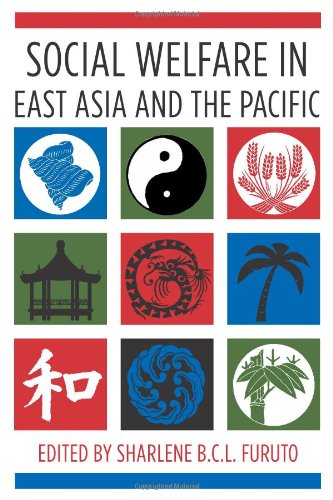

Most ebook files are in PDF format, so you can easily read them using various software such as Foxit Reader or directly on the Google Chrome browser.
Some ebook files are released by publishers in other formats such as .awz, .mobi, .epub, .fb2, etc. You may need to install specific software to read these formats on mobile/PC, such as Calibre.
Please read the tutorial at this link: https://ebookbell.com/faq
We offer FREE conversion to the popular formats you request; however, this may take some time. Therefore, right after payment, please email us, and we will try to provide the service as quickly as possible.
For some exceptional file formats or broken links (if any), please refrain from opening any disputes. Instead, email us first, and we will try to assist within a maximum of 6 hours.
EbookBell Team

4.8
84 reviewsIn this singular collection, indigenous experts describe the social welfare systems of fifteen East Asian and Pacific Island nations and locales. Vastly understudied, these lands offer key insight into the successes and failures of Western and native approaches to social work, suggesting new directions for practice and research in both local and global contexts.
Combining international experiences and professional knowledge, contributors illuminate the role of history and culture in shaping the social welfare systems of Cambodia, China, Hong Kong (SAR, China), Indonesia, Malaysia, the Micronesian region (including the Federated States of Micronesia, Guam [Unincorporated Territory, U.S.A.], Marshall Islands, Northern Mariana Islands [Commonwealth, U.S.A.], and Palau), Samoa and American Samoa (Unincorporated Territory, U.S.A.), South Korea, Taiwan, and Thailand. The contributors link the values and issues that concern populaces most to the development of social work practice, policy, and research. Sharlene B. C. L. Furuto then conducts a comparative analysis of the essays including their data and social service programs, highlighting the similarities and differences between the evolution of social welfare in these nations and locales. She contrasts their indigenous approaches, the responses of governments and NGOs to social issues, the availability of social work education, as well as API models, paradigms, and templates, and the overall status of the social work profession. Furuto also adds a chapter comparing the distinct social welfare systems of Samoa and American Samoa. The only volume to focus exclusively on social welfare in East Asia and the Pacific, this anthology holds immense value for practitioners and researchers eager for global perspectives.